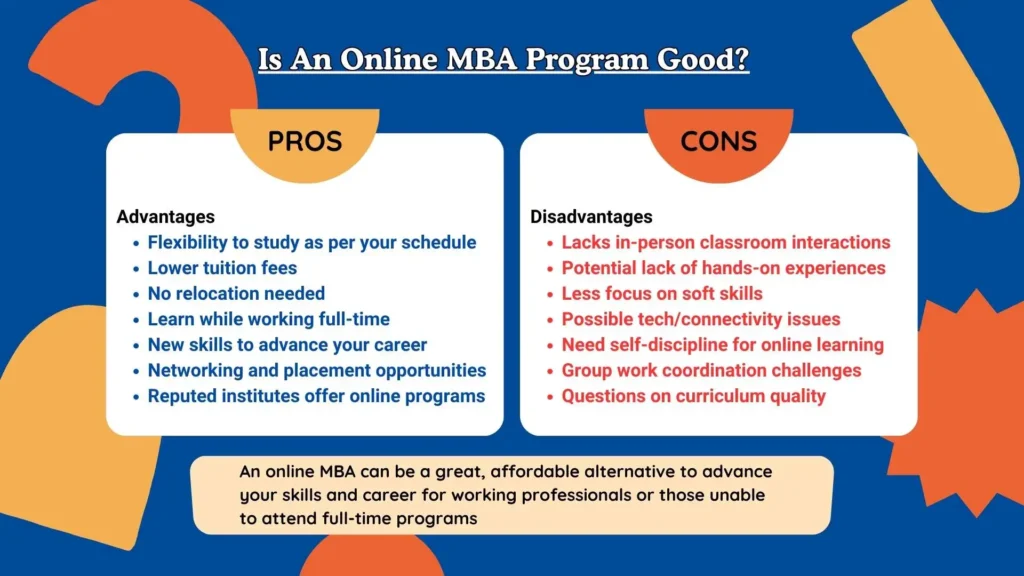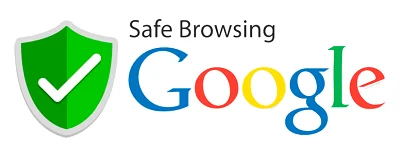In today’s digital landscape, the traditional path to a Master’s in Business Administration (MBA) is evolving rapidly. With the advent of online education, aspiring business professionals now have the opportunity to pursue this esteemed degree without sacrificing their work or personal commitments. However, like any educational decision, the question arises: are online MBAs on par with their on-campus counterparts? To provide clarity, this article will delve into the pros and cons of online MBAs, examining their advantages and potential drawbacks to help you make an informed decision about your academic future.
Can You Earn an MBA Online?
Benefits of Online MBA Programs
Online MBA programs offer a number of advantages over traditional programs, including:
Flexibility: Online MBA programs allow students to study at their own pace and on their own schedule. This is a major advantage for students who are working full-time, have families, or live far from a traditional campus.
Affordability: Online MBA programs can be more affordable than traditional programs, as they often have lower tuition costs and fewer fees.
Convenience: Online MBA programs are accessible from anywhere with an internet connection. This makes them a good option for students who travel frequently or live in remote areas.
| Benefit | Description |
|---|---|
| Flexibility | Study at your own pace and on your own schedule. |
| Affordability | Lower tuition costs and fewer fees than traditional programs. |
| Convenience | Accessible from anywhere with an internet connection. |
Challenges of Online MBA Programs
While online MBA programs offer many benefits, there are also some challenges associated with them, such as:
Lack of In-Person Interaction: One of the biggest challenges of online MBA programs is the lack of in-person interaction with professors and classmates. This can make it difficult to build relationships and network.
Self-Discipline: Online MBA programs require a high level of self-discipline and motivation. Students must be able to stay on track with their studies and meet deadlines without the support of a traditional classroom environment.
Technology Issues: Online MBA programs rely heavily on technology. Students need to have reliable access to the internet and a computer that can handle the demands of online learning.
| Challenge | Description |
|---|---|
| Lack of In-Person Interaction | Difficult to build relationships and network. |
| Self-Discipline | Requires a high level of self-discipline and motivation. |
| Technology Issues | Requires reliable access to the internet and a computer. |
Choosing the Right Online MBA Program
Choosing the right online MBA program is crucial for your success. Here are some important factors to consider:
Accreditation: Make sure the program is accredited by a reputable organization.
Curriculum: The curriculum should be relevant to your career goals.
Faculty: The faculty should be experienced and knowledgeable.
Technology: The program should use user-friendly technology.
Support Services: The program should offer adequate support services, such as career counseling and academic advising.
| Factor | Description |
|---|---|
| Accreditation | Make sure the program is accredited by a reputable organization. |
| Curriculum | The curriculum should be relevant to your career goals. |
| Faculty | The faculty should be experienced and knowledgeable. |
| Technology | The program should use user-friendly technology. |
| Support Services | The program should offer adequate support services, such as career counseling and academic advising. |
Is Online MBA Right for You?
Pros of an Online MBA
An online MBA program offers a number of advantages over a traditional, on-campus program.
Flexibility: Online MBA programs offer a high degree of flexibility, allowing students to study at their own pace and on their own schedule. This is a major advantage for working professionals who may not be able to attend traditional classes.
Affordability: Online MBA programs are often more affordable than traditional programs. This is because online programs have lower overhead costs.
Accessibility: Online MBA programs are accessible to students from all over the world. This is a major advantage for students who may not be able to relocate to attend a traditional program.
Cons of an Online MBA
While online MBA programs offer many advantages, there are also some potential drawbacks.
Lack of Face-to-Face Interaction: One of the biggest drawbacks of an online MBA program is the lack of face-to-face interaction with professors and classmates. This can make it more difficult to build relationships and network.
Self-Discipline: Online MBA programs require a high degree of self-discipline. Students must be able to stay motivated and on track without the structure of a traditional classroom.
Technology Requirements: Online MBA programs require students to have access to a reliable internet connection and a computer with the necessary software. This can be a challenge for students who do not have access to these resources.
Accreditation and Quality of Programs
It is crucial to ensure that the online MBA program you are considering is accredited by a reputable organization. Accreditation ensures that the program meets certain quality standards and that your degree will be recognized by employers.
Career Advancement and Salary Potential
An online MBA can be a valuable asset for career advancement. It can equip you with the skills and knowledge needed to advance to leadership roles and potentially increase your earning potential.
Finding the Right Program for You
Before enrolling in an online MBA program, it’s essential to carefully consider your individual needs and goals. Evaluate the program’s curriculum, faculty, and reputation. Consider factors such as your career aspirations, budget, and lifestyle to determine if an online MBA is the right fit for you.
Frequent questions
Can I really earn an MBA online?
Yes, you can absolutely earn an MBA online. In fact, online MBA programs are becoming increasingly popular, with many top-tier business schools offering high-quality online programs. These programs are designed to provide the same rigorous academic experience as traditional on-campus programs, but with the flexibility and convenience of online learning.
What are the pros of an online MBA?
Online MBA programs offer several advantages over traditional programs, including:
Flexibility: Online programs allow you to study at your own pace and on your own schedule, making it possible to balance your studies with work and other commitments.
Accessibility: Online MBAs are accessible to students from all over the world, regardless of their location or work schedule.
Affordability: Online programs often have lower tuition fees than traditional programs, which can make them a more affordable option.
Networking: You’ll have the opportunity to connect with fellow students and faculty from around the world, building a valuable network of contacts.
Technology-focused curriculum: Online programs often incorporate cutting-edge technology into their curriculum, providing students with valuable skills in data analytics, digital marketing, and other areas.
What are the cons of an online MBA?
While online MBAs offer many benefits, they also have some potential downsides:
Lack of in-person interaction: Online programs can be less interactive than traditional programs, making it more difficult to build relationships with classmates and faculty.
Self-discipline: Online programs require a high level of self-discipline and motivation to stay on track with your studies.
Limited career services: Some online programs may offer fewer career services than traditional programs.
Technology requirements: You’ll need a reliable internet connection and a suitable computer to participate in online programs.
Limited access to campus resources: Online students may have limited access to campus resources like libraries, career centers, and student organizations.
How do I choose the right online MBA program for me?
Choosing the right online MBA program is important for your success. Here are some factors to consider:
Program curriculum: Make sure the program aligns with your career goals and interests.
Faculty: Research the program’s faculty and their expertise.
Accreditation: Look for programs accredited by reputable organizations like AACSB.
Career services: Assess the program’s career services and how they can help you land your dream job.
Cost and financial aid: Compare tuition fees and financial aid options.
Technology platform: Make sure the program’s learning platform is user-friendly and accessible.
Student support: Look for programs that offer strong student support services, such as tutoring and career counseling.
Networking opportunities: Choose a program that provides opportunities for networking with fellow students and alumni.






